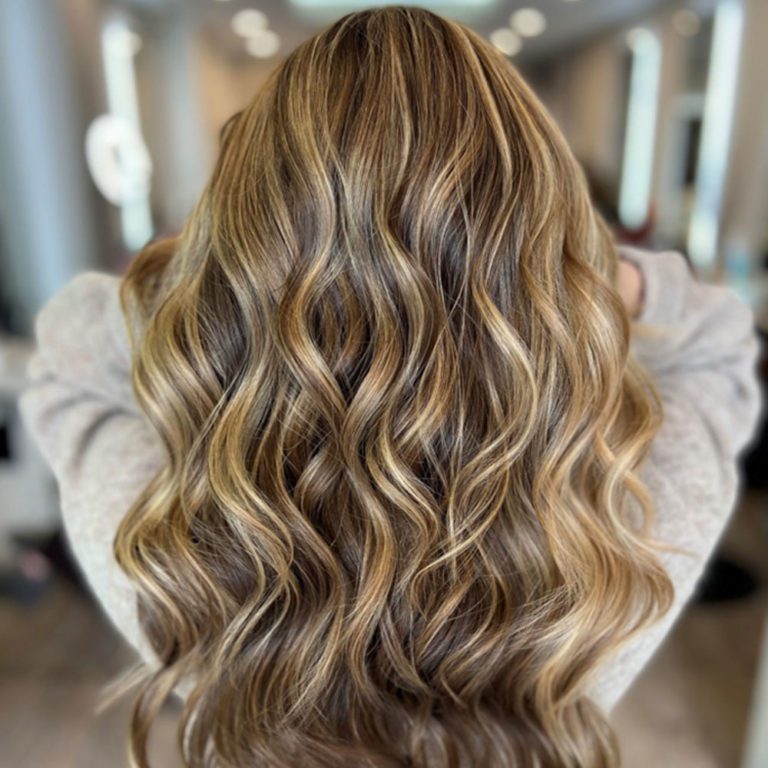
Slowing Hair Growth Naturally: Proven Methods
Introduction to Hair Growth
Understanding hair growth is key to knowing how to slow it down. Hair growth involves three phases: anagen, catagen, and telogen. In the anagen phase, hair actively grows. This phase can last for years. The catagen phase is a transitional stage that lasts a few weeks. The telogen phase is when hair rests. It eventually falls out. These stages vary from person to person, which explains the difference in hair growth rates.
By exploring how to slow down hair growth, you could extend the telogen phase. This results in less frequent hair removal and maintenance. A combination of diet, natural remedies, hormones, and lifestyle can influence hair growth. This blog will guide you through various natural methods. We will cover dietary changes, essential vitamins, and more. The goal is to provide a natural approach to manage unwanted hair growth.

Dietary Changes That Can Affect Hair Growth Rates
Learning how to slow down hair growth often begins with what we eat. Diet impacts our overall health, including the rate at which our hair grows. Here are some dietary changes that can influence hair growth rates:
- Reduce refined sugars: Excessive sugar intake can lead to higher levels of insulin. This may disrupt hormone balance and promote faster hair growth.
- Increase protein intake: Hair is primarily made of protein, so a lack of protein may result in slower hair growth. Choose lean meats, fish, eggs, and plant-based proteins.
- Incorporate Omega-3 fatty acids: Foods rich in Omega-3s, like fish and flaxseeds, can help promote hair health and potentially slow down growth.
- Stay hydrated: Drinking enough water is crucial for hair health. Dehydration can speed up the hair growth cycle.
- Eat hair-friendly vitamins: Vitamins A, E, and C are known to support hair health. Including them in your diet can influence the hair growth cycle.
- Limit processed foods: Processed foods high in unhealthy fats and additives may disrupt hormonal balance, impacting hair growth.
By adopting these dietary changes, you could potentially slow down hair growth. Remember, consistency is key, and it may take some time to see noticeable changes.
Essential Vitamins and Minerals for Slowing Down Hair Growth
Incorporating certain vitamins and minerals into your diet can be pivotal in learning how to slow down hair growth. Essential nutrients play a significant role in balancing the hair growth cycle. Here are key vitamins and minerals that may help managing hair growth rates:
- Vitamin A: Vitamin A aids in the production of sebum, which keeps hair healthy and could influence the hair growth cycle.
- B-Vitamins, including Biotin: These support cell growth and regeneration, which are vital processes in hair health and growth control.
- Vitamin C: This antioxidant helps protect hair follicles from damage and may help prolong the telogen phase.
- Vitamin E: Known for its antioxidant properties, Vitamin E can help combat oxidative stress that could otherwise speed up hair growth.
- Iron: An iron deficiency can lead to hair loss. Ensuring adequate iron intake can keep the hair growth in check.
- Zinc: Critical for hair tissue repair and growth, zinc can help maintain a normal hair growth cycle.
- Magnesium: It plays a role in hair growth and may prevent hair follicles from becoming prematurely active (entering the anagen phase too soon).
- Selenium: This mineral helps prevent cellular damage from free radicals, potentially influencing hair growth rates.
Remember to consult with a healthcare professional before drastically changing your vitamin and mineral intake, as balance is key for optimal health. By mindfully incorporating these nutrients into your daily regimen, you could potentially see a reduction in hair growth over time.

Natural Remedies and Herbal Treatments
Along with diet and nutrients, natural remedies can also help control hair growth. Many herbs have properties that may affect hair follicles and growth rates. Here are some effective natural treatments:
- Spearmint tea: Drinking spearmint tea could reduce androgens, a hormone known to increase hair growth.
- Turmeric: Applying a turmeric paste to the skin might slow hair growth. It has anti-inflammatory properties.
- Sugar and lemon juice: A natural scrub made from sugar and lemon juice could remove hair and slow its return.
- Onion juice: Some studies suggest that applying onion juice to the scalp could promote a longer telogen phase.
- Lavender and tea tree oils: These essential oils, when applied topically, might decrease unwanted hair.
- Soy products: Consuming soy can introduce phytoestrogens into the body, which may slow hair growth.
Remember to test any topical treatment on a small skin area first. This will ensure you don’t react negatively. For the best results, use these remedies consistently over time. Be patient, as natural methods can take longer to show effects.
The Role of Hormones in Hair Growth
Hormones significantly influence hair growth rates. They signal when hair should grow and rest. For example, androgens increase hair growth, particularly in unwanted areas. Lowering androgen levels might slow hair growth. Estrogen and progesterone, on the other hand, can decrease hair growth. Balancing these hormones naturally can manage hair growth over time. Simple changes in diet and lifestyle, like eating phytoestrogen-rich foods, managing stress, and maintaining a healthy weight, can help. Checking for hormonal imbalances is also wise. A healthcare provider can offer guidance on natural ways to balance hormones. This can create a more comfortable hair growth pace for you.

Topical Solutions for Reducing Hair Growth
Topical solutions can play a crucial role in managing hair growth. Applying certain products directly to the skin may help reduce the rate at which hair grows. When considering how to slow down hair growth, here are some topical treatments to explore:
- Prescription creams: Some creams, prescribed by dermatologists, can slow down hair growth.
- Natural inhibitors: Products with natural ingredients, like papaya enzymes or soy, may lessen hair regrowth.
- Hair growth inhibitors: Over-the-counter lotions and serums are designed to reduce hair density and growth over time.
- Depilatory creams: These creams dissolve hair just below the skin level. They might not slow growth but can make hair finer and sparser with consistent use.
- Eflornithine hydrochloride: This prescription treatment is proven to slow facial hair growth in women.
For best results, choose products suited for your skin type to avoid irritation. Use these treatments as directed and give them time to work, as results may not be immediate but can be effective over the long term. Remember to consider possible side effects and consult with a healthcare professional if you have concerns.
Hair Removal Techniques with Long-Term Effects
In seeking how to slow down hair growth, certain hair removal methods can have prolonged effects. These techniques go beyond the temporary results of shaving and waxing, offering extended periods of smooth skin. When considering long-term hair growth control, here are some techniques to consider:
- Laser hair removal: This method uses laser light to damage the hair follicles, significantly reducing hair regrowth over time. Multiple sessions are needed for best results.
- Electrolysis: Electrolysis destroys hair follicles with electrical currents. It’s the only FDA-approved permanent hair removal method.
- Intense Pulsed Light (IPL): Similar to laser hair removal, IPL uses broad-spectrum light to target and diminish hair follicles, leading to slower regrowth.
- Prescription treatments: Certain prescribed medications can suppress hair growth, especially those that affect hormonal levels.
- Threading or tweezing: While not permanent, these methods remove hair from the root, which can lead to a reduction in hair growth speed over time.
Each of these techniques requires consideration of skin type, hair color, and personal tolerance for discomfort. It’s essential to consult with a professional to find the most suitable option. Results vary from person to person, but with patience and consistency, these methods can contribute to a noticeable slowdown in hair growth.

Lifestyle Factors That Impact Hair Growth
When exploring how to slow down hair growth, lifestyle choices play an undeniable role. Different habits can either accelerate or decelerate the hair growth cycle, leading to significant differences over time. Here are a few lifestyle factors that can make a measurable difference:
- Stress management: High stress levels can lead to a condition known as telogen effluvium. This condition shifts more hairs into the resting phase, which can result in increased shedding once stress is reduced. Managing stress through activities like yoga, meditation, or regular exercise may help balance hair growth.
- Sleep quality: Good sleep is crucial for overall health, including hair health. Poor sleep can disrupt hormonal balance and potentially accelerate hair growth. Aim for 7-9 hours of quality sleep each night to support a more regulated growth cycle.
- Physical activity: Exercise improves blood circulation, which is beneficial for hair follicles. Regular physical activity can help deliver nutrients to the scalp more efficiently, possibly influencing the hair growth rate.
- Smoking cessation: Smoking has been linked to premature hair loss and could potentially speed up hair growth. Quitting smoking may contribute to normalized hair growth cycles.
- Alcohol consumption: Excessive alcohol intake can lead to dehydration and nutritional deficiencies, both of which might affect hair growth. Limiting alcohol could positively impact the rate of hair growth.
- Sun exposure: Prolonged exposure to the sun’s UV rays can damage hair follicles. Taking steps to protect your scalp and hair from sun damage can help maintain healthy hair growth.
In conclusion, adopting a healthy lifestyle by managing stress, ensuring good sleep, staying active, avoiding tobacco, moderating alcohol, and protecting against sun exposure can support slower and healthier hair growth over time.
Conclusion: Embracing a Slower Hair Growth Journey
As we conclude, understanding how to slow down hair growth means embracing a range of natural methods. It’s about making mindful choices in daily life, from what we eat to how we care for our bodies. Here’s a recap and some final thoughts for your journey to slower hair growth:
- Make dietary adjustments, opting for balanced meals that support a slower hair growth cycle.
- Include essential vitamins and minerals in your diet to fortify hair health and potentially extend the telogen phase.
- Explore natural remedies, like herbal treatments, that might alter the hair growth cycle over time.
- Recognize the influence of hormones and consider natural ways to regulate them for hair growth control.
- Consider topical solutions that apply active ingredients directly to the skin to slow hair regrowth.
- Invest in hair removal techniques that offer long-term results, and understand that patience is key.
- Assess and tweak lifestyle choices that could be speeding up your hair growth, aiming for healthier habits.
Patience and consistency are the names of the game. It might take time and experimentation to see the results you desire. Adopt these strategies into your routine, and you may find yourself enjoying the benefits of slower hair growth. This, in turn, could mean less time and money spent on hair removal, as well as more confidence and comfort in your own skin. Remember, always consult with a healthcare professional if you plan to make significant changes to your health routine. Here’s to your success in managing hair growth naturally!

